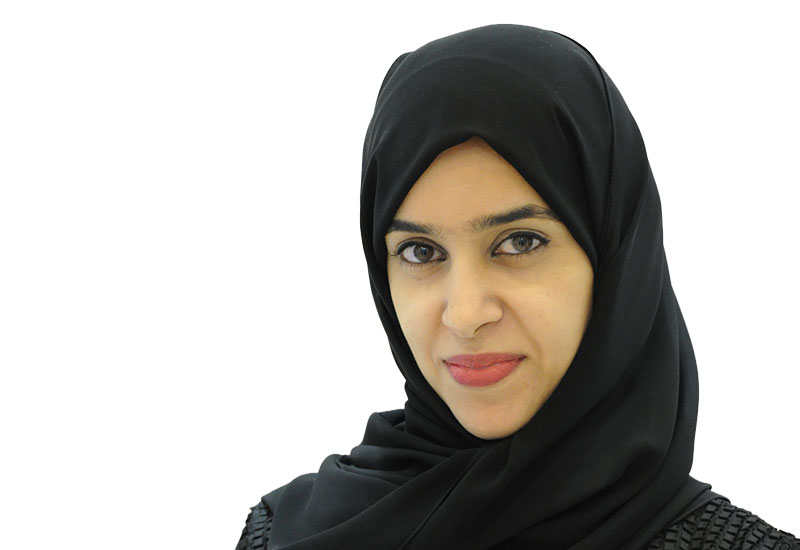DTCM has introduced a new training programme for UAE nationals to encourage more interest in the hospitality sector. Hotelier takes a look at how the new scheme will work, as well as existing initiatives iauthority runs
A At the recent Careers UAE 2015 exhibition, Dubai’s Department of Tourism and Commerce Marketing (DTCM) unveiled plans to train and develop Emirati talent for the industry.
At the careers fair, DTCM had up to 30 vacancies for nationals in departments such as marketing, project management, event and festival management, market insight, HR, finance and accounting.
As part of the recruitment drive, UAE nationals shortlisted for a position will undergo training for two to three years to enhance their skills. This will be done through on-the-job training on various skills, such as marketing, communication, finance, and project management.
Additionally, DTCM is set to introduce a new programme for UAE nationals. Launching in September this year, the Tourism Talent Incubator is designed to provide opportunities for graduates to obtain broad experience of the tourism industry, and encourage them to pursue careers that suit their talents and preferences.
As part of the programme, fresh graduates or those with less than three years’ work experience will complete training within different sectors of the tourism and hospitality industry across various departments, including events and exhibitions, HR, marketing, finance, and more.
“We will be focusing on two main components — the first component will be to enhance the business skills of UAE nationals, and the second is to enhance the tourism knowledge of individuals.
“It’s really important to enhance their knowledge in terms of using different skills and different tools,” comments DTCM director human resources Mariam Al Maeeni.
While the programme is still in the design stage, Al Maeeni says the tourism body is working closely with its strategic partners within the industry to build the training programme. The team is also using input from DTCM’s overseas offices in order to train employees to be able to work in the authority’s international offices.

| Advertisement |
Speaking about the need to encourage Emiratis to work in the hospitality industry, DTCM executive director, corporate support sector Ibrahim Yaqoot says: “We want Emiratis to work in hotels because it’s really important for the hotels to be sustainable; and for the industry to be sustainable, we need nationals to get involved.”
This echoes similar views expressed by Wasl Hospitality CEO Mustafa Al Hashimi at the Arabian Hotel Investment Conference, who said: “The growth in hospitality is tremendous in the GCC and there is a lot of opportunity.
Travel, tourism and hospitality play important roles here in diversification. However, there is still a shortage of GCC nationals working in the industry. Students and GCC kids don’t really know about hotels as a career path.”
To this end, DTCM already has a number of training programmes and partnerships in place. These include the Emiratisation task force, which includes more than 40 hotels in Dubai.
Furthermore, the government’s START for Emiratisation programme aims to prepare and educate young Emiratis to work in the sector. The Skills, Tasks, and Results Training (START) programme runs over five weeks each quarter and was developed by the American Hotel & Lodging Educational Institute (AH&LA).
START for Emiratisation provides training opportunities for professionals across various disciplines in the hospitality industry, including food and beverage, front office, reservations, housekeeping, bell services, and more.
DTCM runs the programme in partnership with hotels to ensure participants get recruited upon completion. Yaqoot reveals that almost 90% of START participants receive an offer from hotels. Additionally, hotels also use different channels to recruit nationals for their properties, and then enrol them in the START programme run by the DTCM for further training.
Yaqoot asserts: “[The feedback from hotels] has been very good actually, because the main thing for hotels is that they want to recruit UAE nationals who know the industry and this is what we are doing — we take the UAE nationals, we train them, teach them about communication and the work environment, and we give them a certificate; so academically they are ready to work in the hotel.”
DTCM aims to increase the number of Emiratis in hospitality by 5-7% each year, and is working on building more partnerships, including with hotel operators as well as individual properties.
“We work very closely with hotels regarding their needs — which areas they want to recruit UAE nationals in, what sort of training they want. We even go beyond this — we train line managers of the hotels on how to deal with UAE nationals,” Yaqoot says. “Ten years ago we used to have only 10 or 11 Emiratis working in hotels through the programme, and now we have 3200.
“Lots of them are actually in managerial positions,” he states.









 Search our database of more than 2,700 industry companies
Search our database of more than 2,700 industry companies









